Material Selection for Custom Printed T-Shirts: How to Choose the Perfect Fabric with Print-On-Demand Services

Custom printed t-shirts have become increasingly popular for self-expression, branding, and creating personalized merchandise. With the rise of print-on-demand services, it has never been easier to design and order custom t-shirts. One crucial aspect that can greatly impact the overall quality and comfort of your custom t-shirts is the choice of fabric.
-
Understanding the Significance of Material Selection
When it comes to custom-printed t-shirts, the fabric plays a pivotal role in determining the overall look, feel, and durability of the garment. Choosing the right material ensures that your t-shirts showcase your design accurately and offer maximum comfort and longevity. Furthermore, fabric selection influences the printing process and the design outcome, making it a crucial decision for anyone looking to create high-quality custom t-shirts.
-
Exploring Print-on-Demand Services
Before diving into the intricacies of fabric selection, let's briefly explore print-on-demand services. Print-on-demand (POD) services allow individuals or businesses to create custom-designed products, including t-shirts, without upfront inventory or production costs. With POD services, you can upload your designs, select the products you want to print, and have them manufactured and shipped to your customers on demand. This convenient and cost-effective solution has revolutionized the world of custom merchandise.
-
Factors to Consider for Material Selection
Comfort
One of the primary considerations when choosing t-shirt fabric is comfort. A comfortable fabric ensures that the wearer feels at ease throughout the day. Look for soft, breathable, and gentle fabrics on the skin. Cotton, for example, is a popular choice for t-shirts due to its natural breathability and softness.
Durability
Another crucial factor to consider is the durability of the fabric. You want your custom-printed t-shirts to withstand regular wear and washing without losing shape, color, or design. Fabrics such as polyester blends or ring-spun cotton are known for their strength and ability to maintain their appearance even after multiple washes.
Print Compatibility
Since the primary purpose of custom-printed t-shirts is to showcase your design, choosing a fabric compatible with the printing method used by POD services is essential. Different fabrics may require specific printing techniques, such as screen printing or direct-to-garment (DTG) printing. Check the printing guidelines your chosen POD service provides to ensure optimal results.
-
Common T-Shirt Fabric Options
Cotton
Cotton is one of the most widely used fabrics for t-shirts due to its softness, breathability, and ability to absorb moisture. It provides a comfortable fit and is suitable for various printing techniques. However, pure cotton t-shirts may shrink after washing, so consider pre-shrunk or blended cotton fabrics.
Polyester
Polyester is a synthetic fabric known for its durability, wrinkle resistance, and color retention. It offers excellent print vibrancy and is resistant to stretching and shrinking. Polyester blends are commonly used for athletic t-shirts or designs that require vibrant and long-lasting prints.
Blended Fabrics
Blended fabrics, such as cotton-polyester blends, offer the best of both worlds. These fabrics combine cotton's comfort and breathability with polyester's strength and durability. Blends can be an excellent choice for custom-printed t-shirts prioritizing comfort and longevity.
Tri-blends
Tri-blend fabrics are popular for those seeking a unique texture and a vintage, worn-in feel. These fabrics typically consist of a combination of cotton, polyester, and rayon. Tri-blends offer a lightweight and soft touch, making them ideal for fashion-forward designs or creating a retro aesthetic.
Performance Fabrics
Performance Fabrics are t-shirt materials that cater to specific activities or environments. These fabrics are designed to wick away moisture, provide breathability, and enhance stretch and durability. Performance fabrics like moisture-wicking polyester or spandex blends are commonly used for sports or fitness-related custom t-shirts.
-
Consultation with Print-On-Demand Services
When selecting the fabric for your custom-printed t-shirts, consulting with your chosen print-on-demand service is beneficial. They can provide valuable insights and recommendations based on their printing capabilities and expertise. Some POD services may offer various fabric options or have specific guidelines for optimal print quality. By communicating with the POD service, you can ensure that your fabric choice aligns with their printing methods and achieve the desired outcome.
-
Sample Testing and Quality Assurance
Before placing a bulk order for your custom-printed t-shirts, you should order a sample or small batch for testing and quality assurance. This will allow you to assess the fabric's feel, print quality, and durability firsthand. Furthermore, it allows you to make any necessary adjustments or refinements to your design before mass production. Investing in sample testing can save you time, money, and potential customer dissatisfaction in the long run.
Final Thoughts
The material selection for custom-printed t-shirts is a crucial decision that directly impacts your garments' quality, comfort, and longevity. With the availability of print-on-demand services, choosing the right fabric that aligns with your design, printing method, and customer preferences is essential. Consider factors such as comfort, durability, and print compatibility when selecting t-shirt materials.
Cotton, polyester, blended, tri-blends and performance fabrics are popular options. Consultation with your print-on-demand service and conducting sample testing can further ensure the desired outcome. By carefully selecting the perfect fabric for your custom-printed t-shirts, you can create high-quality products that leave a lasting impression on your customers.
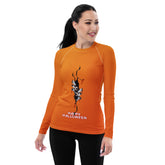

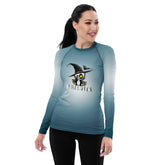
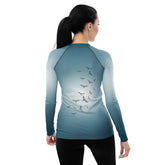
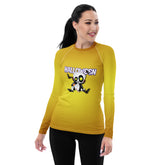

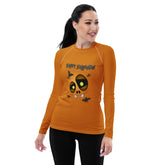
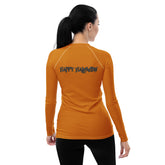

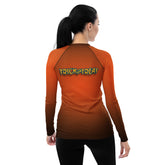
Leave a comment
Please note, comments need to be approved before they are published.